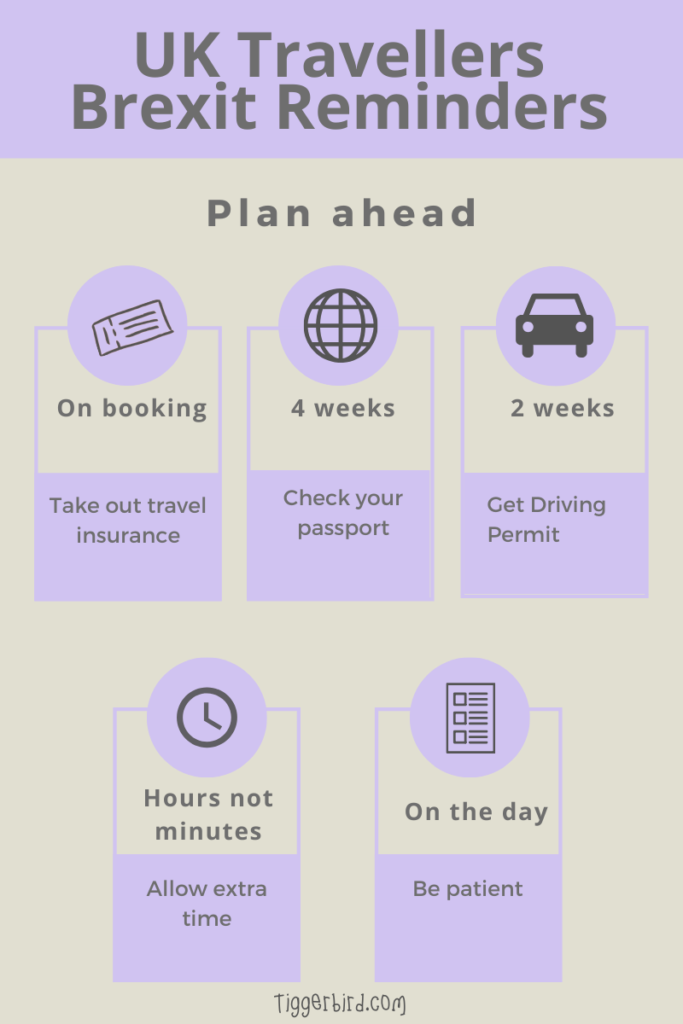Back in March, when the first Brexit deadline was imminent, I wrote a post to help with preparing for travels to Europe after Brexit. Since then very little has changed other than the date being moved from March to October and now to 31 January. Currently it looks like there might be a withdrawal agreement and transition period for the rest of this year.
Thankfully the potential implications on any travels to Europe after Brexit are limited. Although I’d recommend you keep checking the full guidance. For those with plans to travel to a European destination after Brexit here’s a reminder of what to consider.
Passport
When the UK leaves the EU, new passport rules will apply. You should make sure your passport is valid for more than 6 months, or renew it. If you renewed your passport early, last time, the extra days added onto the standard 10 years will not count towards the 6 month expiry window.
Check if your passport has enough time left here.
If you need to renew you passport it will cost £75.50 if you complete an online application, and it can take up to 3 weeks. There are other options for faster applications.
Flights
The majority of flights should continue without any issues but it’s worth checking on your flights, directly with your airline.
Delays
Expect longer queues at arrivals, whilst everyone is checked. You may need evidence of an onward or return journey, so it’s worth having this ready.
If you allow extra time and prepare to be patient, although it will be frustrating to travel to/from Europe whilst things settle down, you should be fine.
Insurance
Many UK residents travelling to Europe have relied upon their EHIC card in the past. After Brexit this may be invalid and therefore you will need to your travel insurance to cover medical care.
An EHIC card only covers medical treatment so you should have already been taking out travel insurance when travelling abroad. Travel insurance is also not a replacement for EHIC. You need both.
Travel insurance can be obtained easily but do read: How to avoid invalidating your travel insurance.
Visas
British Citizens will be granted visa free entry for short stays in the Schengen area. There is however a 90 day limit within a 6 month period and it does not permit you to work. A work permit will need to be obtained.
Driving
For those planning to drive their own car in or through countries that are part of the Free Circulation Zone, after Brexit, will need a green card. This should be provided by your insurer free of charge. However, you will need to let them know and apply for this in advance.
You will also require an International Driving Permit (IDP). An IDP can be obtained in person at a post office. The Post Office website has more info – guidance here.
Finally, you should get a GB sticker for your vehicle, if you haven’t already.
Mobile phones
Some mobile phone operators (3, EE, O2 and Vodafone) have indicated that they currently have no plans to change their approach to roaming after Brexit.
A new law now protects you from mobile data charges being made above £45 without your knowledge. You will need to opt in to spend more than this whilst abroad.
Other
There are a number of other things to consider, such as if you are travelling with pets (allow at least 4 months to make arrangements).
This post has been written to highlight a few areas to consider for any travels to Europe after Brexit. However, to be fully prepared, I recommend you read the government guidance fully, in relation to areas that are specific to your personal situation and plans.
Pin it for later:





